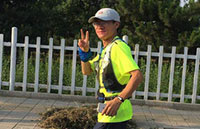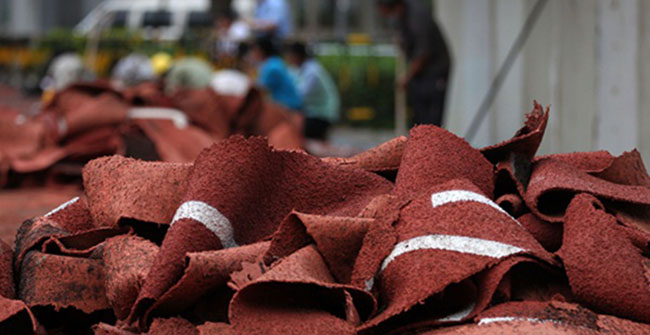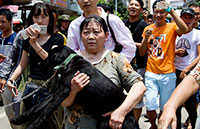Tomb relocation suspended after triggering concerns
(Xinhua) Updated: 2012-11-21 17:06Tomb-clearing operation
Although China has banned burials in many areas and has advocated cremation for years, Zhoukou's move is touching a nerve for many.
It is a commonly held belief in China that a good location for ancestors' tombs can bring good luck and happiness, but damaging the tombs can spell disaster.
The relocation did not simply demolishing the graves, said Meng. Villager could choose to send the bodies to the undertakers for free cremation and the ashes can be placed in the public cemeteries. The city has planned more than 3,000 rural public cemeteries.
Zhoukou has been dubbed the "barn in the east of Henan province" due to its great grain production, and the tombs relocation has resulted in the reclamation of nearly 30,000 mu (4,942 ares) of farmland, according to Meng.
It's not an easy task, the official said. "To push over the tombs in the field, we know that we must first push over the 'tombs' in people's minds."
Meng noted that substantial education and publicity work has been carried out since March. The local government contacted those who work or live elsewhere via phone, and even sent staff to visit and persuade them to allow others to help relocate their families' tombs.
The local government offered 200 yuan ($32) for removing each tomb. To serve as a model, the heads of some villages took the lead in removing the tombs of their own deceased family members.
Like most of the villagers, Liang Ansheng from Zhuji Village in Zhoukou said he was not willing to relocate his family members' tombs at first.
"But the public cemetery is really decent and beautiful, and I finally made up my mind when I witnessed the village head removing his ancestors' tombs," Liang added.
The villager said that all the tombs in his area were removed in less than one week as other residents all eventually participated.
Zhao Guofu, from Daliu Village, told reporters that he has saved on harvesting costs since removing the seven tombs in his field. "The big harvesting machine could not operate among these tombs, and I had to rent another small harvester."
Zheng Fengtian, vice-president of the School of Agricultural Economies and Rural Development, Renmin University of China, has suggested putting an end to the move, as he worries it may harm relations between the people and the government and endanger local grain security.
- Li vows to boost support for real economy
- 2020 health plan to ease burden on people in poverty
- US urged not to rock the boat by flexing its muscles
- Thousands flee their homes amid fatal downpours
- Chinese supercomputer tops list of world's fastest
- Booze banned at official banquets
- Students paying $15,000 to consultants to select college
- US urged not to meddle with internal Tibet affairs
- China puts squeeze on imported TV shows and remakes
- Apple's appeal in iPhone case accepted by IP court










